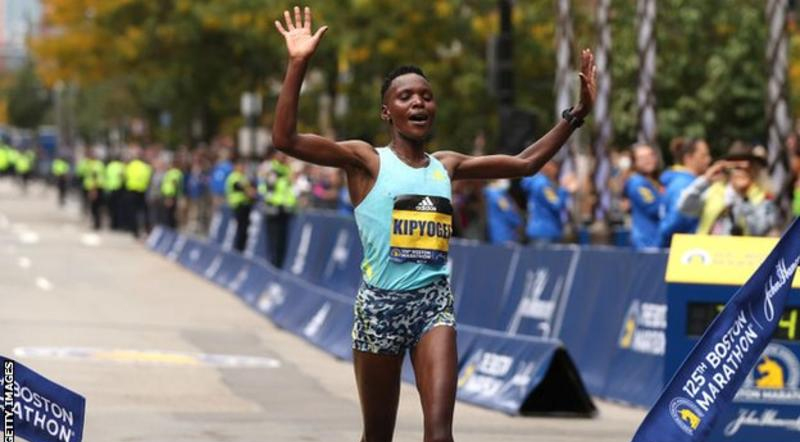(Reuters) – Kenya’s 2021 Boston Marathon winner Diana Kipyokei and compatriot Betty Wilson Lempus have been provisionally suspended for using the banned substance triamcinolone acetonide, the Athletics Integrity Unit (AIU) said yesterday.
Both have also been charged with obstructing the AIU’s investigation by providing false information or documentation.
“After extensive investigations, the AIU has provisionally suspended two Kenyan marathoners – Diana Kipyokei and Betty Wilson Lempus – and charged them with various breaches of the World Athletics Anti-Doping Rules,” the body said in a statement.
“These alleged anti-doping rule violations stem from probes into the information provided by the athletes to explain Adverse Analytical Findings (AAF) for metabolites of triamcinolone acetonide in samples.”
Kipyokei’s sample was taken after her victory in Boston last October and the 28-year-old would be stripped of the title if the charges are proven.
Lempus, 31, was tested following her win at the Harmonie Mutuelle Semi de Paris in September last year.
Triamcinolone acetonide, a substance prohibited in-competition when administered in certain ways, falls under the banned category of glucocorticoids, commonly used as therapeutic substances in sports.
“(Glucocorticoids) are prohibited in-competition because, when administered via prohibited routes, there is clear evidence of systemic effects which could potentially enhance performance and be harmful to health,” the AIU added.
Their use is permitted if athletes can produce an exemption or proof that administration is not through a prohibited route.
The latest suspensions mean that 10 Kenyan athletes have tested positive for triamcinolone acetonide. In comparison, only two athletes have returned positive tests for the substance globally during the same period.
On Thursday, the AIU banned Kenyan marathoner Mark Kangogo for three years for the use for norandrosterone and triamcinolone acetonide.






